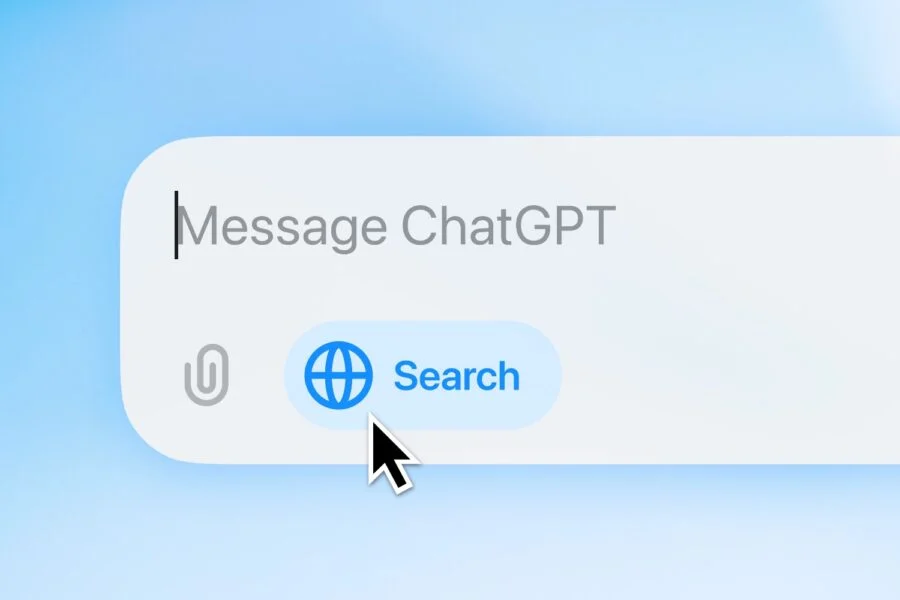ChatGPT is now officially an artificial intelligence (AI) web search engine. OpenAI, the American company which launched ChatGPT as a generative AI chatbot in November 2022, is enabling real-time information in conversations for paid subscribers with free, enterprise, and education users gaining access in the coming weeks.
Rather than launching as a separate product, web search will be integrated into ChatGPT’s existing interface. The feature determines when to tap into web results based on queries, though users can also manually trigger web searches. ChatGPT’s web search integration finally closes a key competitive gap with rivals like Microsoft Copilot and Google Gemini, which have long offered real-time internet access in their AI conversations.
OpenAI’s conversational chatbot ChatGPT can now search the web and respond to queries with links to relevant web sources similar to a search engine. The feature was first released as a prototype called ‘SearchGPT’, designed to combine the conversational capabilities of AI models with information from the web.
Until now ChatGPT’s responses were limited to the cut-off date when its base model was last trained on. Combining this with search, the chatbot can now generate real-time responses such as breaking news insights, stock market movements, live sports scores, weather alerts and currency exchange rates.
In a pre-launch demo, OpenAI’s ChatGPT search lead, Adam Fry, showcased the feature by searching for Apple’s stock and any relevant news. In return, it displayed an interactive stock graph, upcoming earnings information, and news articles with clickable citations linking to original sources. There’s also a sources sidebar that lets users scroll through a list of relevant websites. In another example, Fry searched for Italian restaurants in San Francisco, which returned an interactive map that dropped pins for recommended restaurants. In both examples, Fry asked follow-up questions to hone the result (like finding restaurants that are “more casual and neighborhood-y”).
“Search has gotten a lot more interesting in 2024 – thanks to Perplexity and OpenAI,” said Arun Chandrasekaran, distinguished VP analyst, Gartner. “It is much more personalised, persuasive and direct to the consumer.”
Researchers have started pondering how advertising could be transformed with the power of GenAI which can autonomously learn and act on the specific behaviour of individual users.
Whether GenAI-based search can replace Google Chrome is still unclear, especially since it controls 80% of the market and is already powering AI summaries with its proprietary model, Gemini. Last week, Google reported $49.4 billion generated from search business in the third quarter. Its search business generated $49.4 billion in revenue, up 12.3% from a year ago, and the search business remained the largest contributor to the company’s revenue growth.
“Google is a formidable competitor in this space. Their branding, understanding of how to visualise search and their vast go-to-market partnerships are hard to replicate in the near-term,” Chandrasekaran said.
While GenAI prompting is evolving, it hasn’t yet fully met the basic need for quick, accurate information. Additionally, the cost of computing is a significant issue, as AI models consume far more energy per query compared to traditional search engines, potentially leading to a significant increase in energy usage with widespread adoption.
For the travel industry, ChatGPT’s integration into web search offers personalized, real-time recommendations for flights, accommodations, and itineraries, transforming how users plan and book trips. As the AI model evolves, it could provide seamless, conversational travel assistance, making the booking process more intuitive and efficient for both consumers and businesses.


